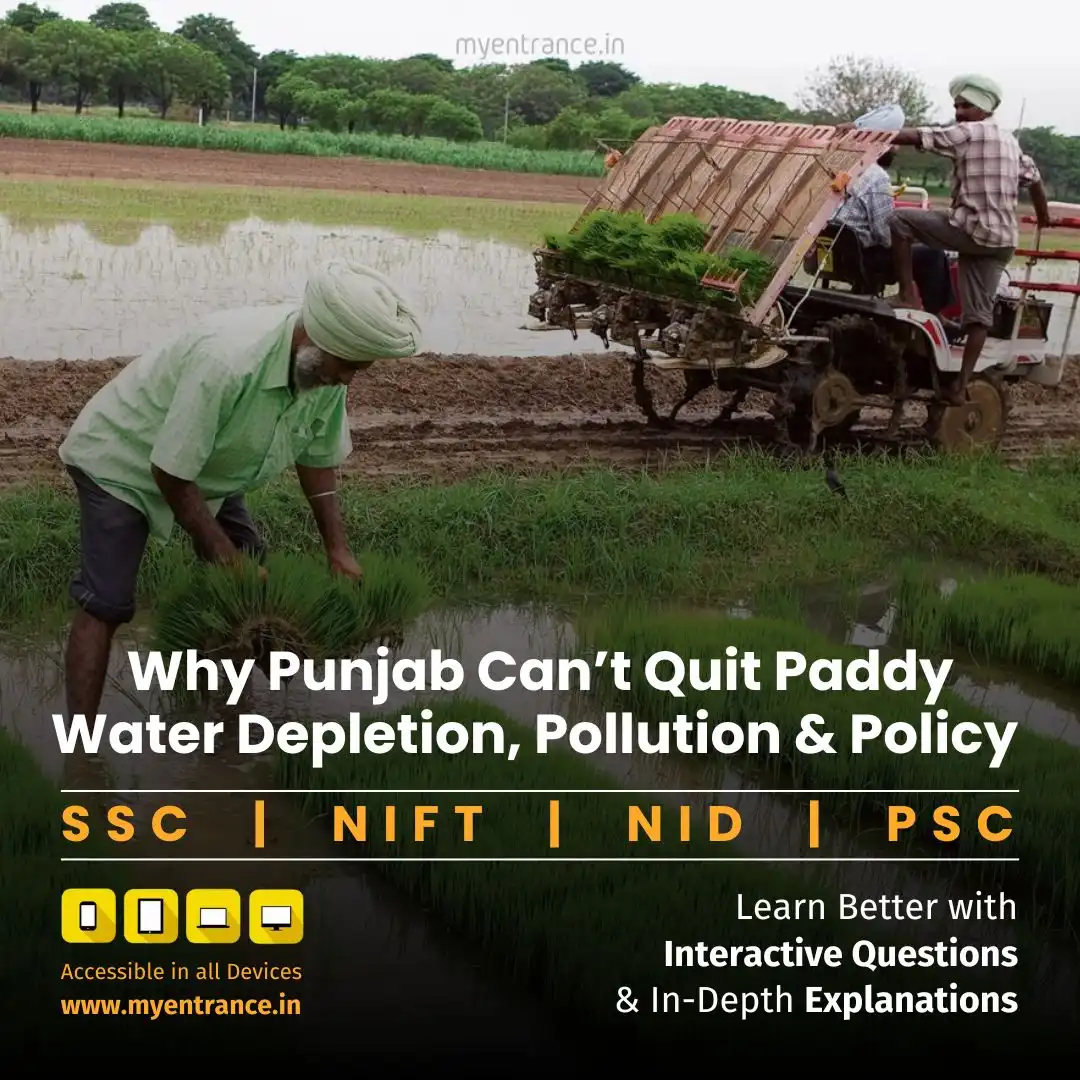Select Language
Why Punjab Can’t Quit Paddy: Water Depletion, Pollution & Policy Failures
Punjab faces an ecological emergency as paddy cultivation nears record highs despite diversification policies. Guaranteed MSP, free power, and flawed laws perpetuate a cycle of water depletion, air pollution, and soil degradation.
Why Paddy Dominates Punjab’s Fields
Punjab’s kharif season sees 35+ lakh hectares under cultivation, with paddy occupying 32 lakh hectares (91%!). This isn’t farmer stubbornness—it’s a system rigged by policy:
MSP Assurance: Paddy guarantees procurement; maize/pulses lack secure markets.
Free Power & Subsidies: 8 hours/day free electricity for water pumps and subsidized fertilizers favor water-intensive paddy.
Policy Paralysis: The 2009 groundwater law delayed planting, shortening the wheat-sowing window and incentivizing stubble burning.
Environmental Catastrophes Unfold
Punjab pays a steep price for its rice bowl status:
Water Depletion: Paddy guzzles 5,000+ liters per kg of grain. Result? Groundwater sinks by 0.5 meters/year—among India’s fastest rates.
Soil Health Collapse: Monoculture depletes nutrients, spiking chemical fertilizer use.
Air Pollution: Hurried post-harvest clearing forces stubble burning, choking Delhi-NCR every winter.
Why Diversification Efforts Fail
Punjab’s 2024 plan to shift 12,000 hectares to maize is a drop in the ocean. Deeper issues:
Tokenism: Even if successful, paddy would still cover 89% of kharif area.
No Profit Parity: Without MSP-like guarantees, farmers reject risky alternatives.
Infrastructure Gaps: Poor storage/marketing for non-paddy crops.
Solutions: Beyond Quick Fixes
Overhaul MSP: Include pulses/oilseeds in procurement.
Water Pricing: Phase out free power; promote solar pumps.
Tech Adoption: Scale System of Rice Intensification (SRI) to cut water use by 30%.
Stubble Management: Expand “happy seeder” machines and bio-decomposers.
Sample Q&A for Exams
Q: Which scheme promotes crop diversification in India?
A: Rashtriya Krishi Vikas Yojana (RKVY). Supports states in shifting from water-intensive crops.
Q: What is the primary benefit of SRI in paddy cultivation?
A: *Reduces water usage by 20-50%* while boosting yields through spaced transplantation.
Q: Name one law enacted by Punjab to conserve groundwater.
A: Punjab Preservation of Subsoil Water Act (2009). Delayed paddy sowing to curb early water extraction.
Q: How does paddy monoculture degrade soil?
A: Depletes nutrients (especially nitrogen), increasing dependency on chemical fertilizers.
Q: Why does stubble burning persist in Punjab?
A: Short 15-20 day gap between paddy harvest and wheat sowing leaves no time for decomposition.
Most Predicted Questions
Comprehensive study materials, Expert-guided tips & tricks, Mock tests and instant results.
Start your SSC, NIFT, NID, FDDI, PSC journey today with MyEntrance, your ultimate online coaching platform.







